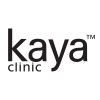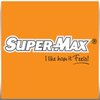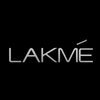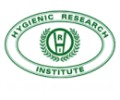
i
Lotus Herbals Private Limited
Proud winner of ABECA 2025 - AmbitionBox Employee Choice Awards
Filter interviews by
Lotus Herbals Private Limited Manufacturing Manager Interview Questions and Answers
10 Interview questions
Key bullet points outlining manufacturing procedures of products
Implementing lean manufacturing principles to optimize production processes
Utilizing Six Sigma methodologies to improve quality and reduce defects
Ensuring compliance with industry regulations and standards such as ISO 9001
Implementing continuous improvement initiatives to enhance efficiency and productivity
Utilizing advanced manufacturing technologies...
A QMS is a set of policies, processes, and procedures required for planning and execution in the core business area of an organization.
QMS helps ensure products meet customer requirements and comply with regulations
It involves quality planning, control, assurance, and improvement
Examples of QMS include ISO 9001 certification and Six Sigma methodologies
Validation and qualification are important processes in manufacturing to ensure products meet quality standards.
Validation is the process of establishing documented evidence that a system or process consistently produces a result meeting predetermined specifications.
Qualification is the process of demonstrating that equipment or systems are suitable for their intended use.
Types of validation include process valida...
FMCG manufacturing departments focus on high volume production of consumer goods with short shelf life, while other manufacturing companies may have different production processes and target markets.
FMCG manufacturing departments prioritize efficiency and speed due to the perishable nature of the products.
Other manufacturing companies may focus on quality control and customization of products.
FMCG companies often ...
cGMP are regulations ensuring quality, safety, and consistency in manufacturing processes.
cGMP are regulations set by the FDA to ensure quality, safety, and consistency in the manufacturing of pharmaceuticals, food, and other products.
They cover areas such as facility design, equipment maintenance, personnel training, record-keeping, and product testing.
Adherence to cGMP helps prevent contamination, mix-ups, and e...
ISO 22715 is a standard that specifies requirements for packaging and labeling of cosmetic products.
ISO 22715 sets guidelines for the packaging and labeling of cosmetic products to ensure consumer safety and product quality.
It covers aspects such as labeling requirements, packaging materials, and information that must be included on the product packaging.
Compliance with ISO 22715 helps cosmetic manufacturers meet ...
Critical Control Points (CCPs) are specific points in the manufacturing process where control measures can be applied to prevent, eliminate, or reduce hazards.
Identify potential hazards in the manufacturing process
Establish critical limits for each CCP
Monitor CCPs to ensure they are within critical limits
Implement corrective actions if a deviation occurs
Verify the effectiveness of the CCPs through regular testing ...
ISO 14001 is a standard for Environmental Management Systems (EMS) that helps organizations minimize their environmental impact.
ISO 14001 sets out the criteria for an environmental management system that a company can follow to improve their environmental performance.
EMS helps organizations identify, manage, monitor, and control their environmental issues in a systematic way.
It involves establishing policies, sett...
GDP stands for Gross Domestic Product, while ALCOA or ALCOA++ are quality management systems used in manufacturing.
GDP is a measure of a country's economic performance, representing the total value of all goods and services produced over a specific time period.
ALCOA is a quality management system focusing on ensuring data integrity in pharmaceutical manufacturing.
ALCOA++ expands on ALCOA by adding attributes like ...
Six Sigma, 5S, and HIRA are methodologies used in manufacturing for process improvement, workplace organization, and risk assessment.
Six Sigma is a data-driven methodology aimed at reducing defects and improving quality in processes.
5S is a workplace organization method focusing on Sort, Set in order, Shine, Standardize, and Sustain.
HIRA stands for Hazard Identification and Risk Assessment, used to identify and mi...
Lotus Herbals Private Limited Manufacturing Manager Interview Experiences
1 interview found
I applied via Walk-in and was interviewed before Dec 2023. There were 2 interview rounds.
(5 Questions)
- Q1. Can you provide details about yourself, including your family and professional background?
- Ans.
I am a dedicated manufacturing professional with a strong background in leading production teams and optimizing processes.
Bachelor's degree in Industrial Engineering
10+ years of experience in manufacturing management
Led a team that increased production efficiency by 20%
Strong communication and leadership skills
Married with two children
- Q2. What is your reason for considering a change or joining a new organization?
- Ans.
I am seeking new challenges and opportunities for growth in my career.
Seeking new challenges to continue learning and developing skills
Interested in opportunities for career advancement
Looking for a more innovative and dynamic work environment
- Q3. What strategies do you employ for team strength and effective leadership in handling tasks?
- Ans.
I employ strategies such as clear communication, setting clear goals, providing support and feedback, and fostering a positive work environment.
Clear communication to ensure everyone understands their roles and responsibilities
Setting clear goals and expectations to keep the team focused
Providing support and feedback to help team members improve and grow
Fostering a positive work environment to boost morale and producti...
- Q4. How flexible are you with working shifts?
- Ans.
I am very flexible with working shifts and have experience working various shifts in previous roles.
I have experience working different shifts in previous roles
I am willing to work nights, weekends, and holidays if needed
I understand the importance of flexibility in a manufacturing environment
- Q5. What do you know about the Lotus Company and the position for which you are interviewing?
- Ans.
Lotus Company is a leading manufacturer in the automotive industry known for its high-performance sports cars.
Lotus Company specializes in manufacturing high-performance sports cars.
The company has a reputation for producing lightweight and agile vehicles.
The Manufacturing Manager position likely involves overseeing production processes, quality control, and supply chain management.
Knowledge of automotive manufacturing...
(10 Questions)
- Q1. What are the differences between working in a FMCG (Fast-Moving Consumer Goods) manufacturing department and in other manufacturing companies?
- Ans.
FMCG manufacturing departments focus on high volume production of consumer goods with short shelf life, while other manufacturing companies may have different production processes and target markets.
FMCG manufacturing departments prioritize efficiency and speed due to the perishable nature of the products.
Other manufacturing companies may focus on quality control and customization of products.
FMCG companies often have ...
- Q2. What are some key bullet points outlining the manufacturing procedures of products in which you have experience?
- Ans.
Key bullet points outlining manufacturing procedures of products
Implementing lean manufacturing principles to optimize production processes
Utilizing Six Sigma methodologies to improve quality and reduce defects
Ensuring compliance with industry regulations and standards such as ISO 9001
Implementing continuous improvement initiatives to enhance efficiency and productivity
Utilizing advanced manufacturing technologies such...
- Q3. What is your understanding of Current Good Manufacturing Practices (cGMP)?
- Ans.
cGMP are regulations ensuring quality, safety, and consistency in manufacturing processes.
cGMP are regulations set by the FDA to ensure quality, safety, and consistency in the manufacturing of pharmaceuticals, food, and other products.
They cover areas such as facility design, equipment maintenance, personnel training, record-keeping, and product testing.
Adherence to cGMP helps prevent contamination, mix-ups, and errors...
- Q4. What is your understanding of ISO 22715?
- Ans.
ISO 22715 is a standard that specifies requirements for packaging and labeling of cosmetic products.
ISO 22715 sets guidelines for the packaging and labeling of cosmetic products to ensure consumer safety and product quality.
It covers aspects such as labeling requirements, packaging materials, and information that must be included on the product packaging.
Compliance with ISO 22715 helps cosmetic manufacturers meet regul...
- Q5. What are the Critical Control Points (CCPs) that should be followed in the manufacturing section?
- Ans.
Critical Control Points (CCPs) are specific points in the manufacturing process where control measures can be applied to prevent, eliminate, or reduce hazards.
Identify potential hazards in the manufacturing process
Establish critical limits for each CCP
Monitor CCPs to ensure they are within critical limits
Implement corrective actions if a deviation occurs
Verify the effectiveness of the CCPs through regular testing and v...
- Q6. What do you know about GDP and ALCOA or ALCOA++?
- Ans.
GDP stands for Gross Domestic Product, while ALCOA or ALCOA++ are quality management systems used in manufacturing.
GDP is a measure of a country's economic performance, representing the total value of all goods and services produced over a specific time period.
ALCOA is a quality management system focusing on ensuring data integrity in pharmaceutical manufacturing.
ALCOA++ expands on ALCOA by adding attributes like Compl...
- Q7. What is your understanding of ISO 14001 and Environmental Management Systems (EMS)?
- Ans.
ISO 14001 is a standard for Environmental Management Systems (EMS) that helps organizations minimize their environmental impact.
ISO 14001 sets out the criteria for an environmental management system that a company can follow to improve their environmental performance.
EMS helps organizations identify, manage, monitor, and control their environmental issues in a systematic way.
It involves establishing policies, setting o...
- Q8. What is a Quality Management System (QMS)?
- Ans.
A QMS is a set of policies, processes, and procedures required for planning and execution in the core business area of an organization.
QMS helps ensure products meet customer requirements and comply with regulations
It involves quality planning, control, assurance, and improvement
Examples of QMS include ISO 9001 certification and Six Sigma methodologies
- Q9. What do you know about validation and qualification, and what are their different types?
- Ans.
Validation and qualification are important processes in manufacturing to ensure products meet quality standards.
Validation is the process of establishing documented evidence that a system or process consistently produces a result meeting predetermined specifications.
Qualification is the process of demonstrating that equipment or systems are suitable for their intended use.
Types of validation include process validation,...
- Q10. What are Six Sigma, 5S, and HIRA?
- Ans.
Six Sigma, 5S, and HIRA are methodologies used in manufacturing for process improvement, workplace organization, and risk assessment.
Six Sigma is a data-driven methodology aimed at reducing defects and improving quality in processes.
5S is a workplace organization method focusing on Sort, Set in order, Shine, Standardize, and Sustain.
HIRA stands for Hazard Identification and Risk Assessment, used to identify and mitigat...
Interview Preparation Tips
- ISO
- CGMP
- ALCOA++
- EMS
- QMS
- Lean Manufacturing
- Manufacturing Process
- Kaizen Implementation
- SAP
Top trending discussions






Interview questions from similar companies

I applied via Approached by Company and was interviewed before Apr 2021. There was 1 interview round.
(1 Question)
- Q1. Are you ready to relocate
Interview Preparation Tips

I applied via Naukri.com and was interviewed before Sep 2020. There were 3 interview rounds.
Interview Questionnaire
2 Questions
- Q1. Tell us something about IND As 116 ?
- Ans.
IND AS 116 is a new lease accounting standard introduced by the Institute of Chartered Accountants of India (ICAI).
IND AS 116 stands for Indian Accounting Standard 116.
It replaces the previous lease accounting standard, IND AS 17.
The standard applies to all entities that prepare financial statements in accordance with Indian Accounting Standards.
IND AS 116 introduces a single lessee accounting model, which requires les...
- Q2. What was your role in previous company
- Ans.
In my previous company, I managed a team, streamlined processes, and improved client relations to enhance overall productivity.
Led a team of 10, focusing on professional development and performance reviews.
Implemented a new project management tool that increased team efficiency by 25%.
Developed strong relationships with key clients, resulting in a 15% increase in repeat business.
Conducted regular team meetings to ensur...
Interview Preparation Tips

Assistant Manager Interview Questions & Answers
Supermax Personal Careposted on 1 May 2023
I applied via Walk-in and was interviewed before May 2022. There were 4 interview rounds.

(1 Question)
- Q1. Related to qualification
(1 Question)
- Q1. Salary nigosition
(1 Question)
- Q1. Personal information

I applied via Naukri.com and was interviewed in Jun 2020. There was 1 interview round.
Interview Questionnaire
1 Question
- Q1. What job profile you are handling?
Interview Preparation Tips

I applied via LinkedIn
(1 Question)
- Q1. Overall discussion on exposure

I applied via Naukri.com and was interviewed in Mar 2021. There were 3 interview rounds.
Interview Questionnaire
2 Questions
- Q1. How will you be relevant fit for the role?
- Ans.
I possess the skills, experience, and leadership qualities essential for the Associate Manager role, ensuring team success and project efficiency.
Proven leadership experience: Managed a team of 10 in my previous role, improving project delivery times by 20%.
Strong communication skills: Regularly facilitated cross-departmental meetings to align goals and enhance collaboration.
Analytical problem-solving: Developed a data...
- Q2. Explain the challenges that you faced in your previous job role and how did you overcome it?
- Ans.
Faced challenges in team dynamics and project deadlines, overcame them through communication and strategic planning.
Challenge: Team conflicts due to differing work styles. Example: Mediated discussions to align goals and improve collaboration.
Challenge: Tight project deadlines leading to stress. Example: Implemented a prioritization framework to manage tasks effectively.
Challenge: Limited resources for a critical proje...
Interview Preparation Tips

(1 Question)
- Q1. Last ctc of previous organisation
- Ans.
My last CTC was competitive and reflected my experience and contributions to the organization.
My last CTC was INR 12 lakhs per annum, which included base salary, bonuses, and benefits.
I negotiated my CTC based on my previous experience in managing large teams and successful project completions.
The CTC also included performance-based incentives that I consistently achieved through exceeding targets.
Interview Preparation Tips

I applied via Approached by Company and was interviewed in Jun 2022. There were 2 interview rounds.
(2 Questions)
- Q1. Tell me about your self..
- Ans.
Experienced manager with a strong track record in leading teams and achieving business goals.
10+ years of managerial experience
Proven ability to motivate and inspire teams
Successfully implemented cost-saving initiatives resulting in a 20% reduction in expenses
Strong problem-solving and decision-making skills
Excellent communication and interpersonal skills
Led a team of 50 employees to exceed sales targets by 15% in the ...
- Q2. Where did you hear about us..
- Ans.
I heard about your company through a job search website.
Job search website
Online job board
Career fair
Referral from a friend or colleague
(3 Questions)
- Q1. Why do you want to change your current position
- Ans.
I am seeking new challenges and opportunities for growth in my career.
Seeking new challenges and opportunities for growth
Looking for a position with more responsibility
Want to broaden my skill set and learn new things
Desire to work in a different industry or company culture
Seeking better work-life balance or location
- Q2. What do you know about us as a organisation
- Ans.
We are a global technology company specializing in software development and IT solutions.
We have been in business for over 10 years
We have a diverse team of skilled professionals
Our clients include Fortune 500 companies
We have expertise in various industries such as finance, healthcare, and e-commerce
- Q3. What is your experience and what is your expectations what can you contribute if you will get selected...
- Ans.
I have 10 years of experience in management roles and my expectations are to contribute my leadership skills, strategic thinking, and problem-solving abilities to drive team success.
10 years of experience in management roles
Strong leadership skills
Strategic thinking and problem-solving abilities
Ability to drive team success
Experience in implementing process improvements
Track record of achieving targets and goals
Effecti...
Interview Preparation Tips
- Tell me about your self

Aptitude test is kind of test to check mental ability of candidate
Group discussion will help to check candidate communication and physical ability
(1 Question)
- Q1. About company and other basic knowledge
Interview Preparation Tips
Lotus Herbals Private Limited Interview FAQs
Some of the top questions asked at the Lotus Herbals Private Limited Manufacturing Manager interview -
Tell us how to improve this page.
Lotus Herbals Private Limited Interviews By Designations
- Lotus Herbals Private Limited Sales Officer Interview Questions
- Lotus Herbals Private Limited Area Sales Manager Interview Questions
- Lotus Herbals Private Limited Beauty Advisor Interview Questions
- Lotus Herbals Private Limited Data Analyst Interview Questions
- Lotus Herbals Private Limited Area Business Manager Interview Questions
- Lotus Herbals Private Limited Marketing Manager Interview Questions
- Lotus Herbals Private Limited Production Manager Interview Questions
- Lotus Herbals Private Limited Customer Service Associate Interview Questions
- Show more
Interview Questions for Popular Designations
- Assistant Manager Interview Questions
- Deputy Manager Interview Questions
- Manager Interview Questions
- Senior Manager Interview Questions
- Operations Manager Interview Questions
- Production Manager Interview Questions
- Associate Manager Interview Questions
- Assistant General Manager Interview Questions
- Show more
Overall Interview Experience Rating
based on 1 interview experience
Difficulty level
Duration
Interview Questions from Similar Companies
Lotus Herbals Private Limited Manufacturing Manager Reviews and Ratings
based on 2 reviews
Rating in categories
|
Sales Officer
128
salaries
| ₹2.4 L/yr - ₹6.7 L/yr |
|
Area Sales Manager
68
salaries
| ₹10.9 L/yr - ₹18 L/yr |
|
Beauty Advisor
38
salaries
| ₹1.5 L/yr - ₹4.1 L/yr |
|
Marketing Executive
36
salaries
| ₹2.5 L/yr - ₹6.3 L/yr |
|
Area Sales Executive
31
salaries
| ₹4.2 L/yr - ₹7.5 L/yr |

VLCC

LOREAL

Lakme

Kaya Skin Clinic
- Home >
- Interviews >
- Lotus Herbals Private Limited Interview Questions











